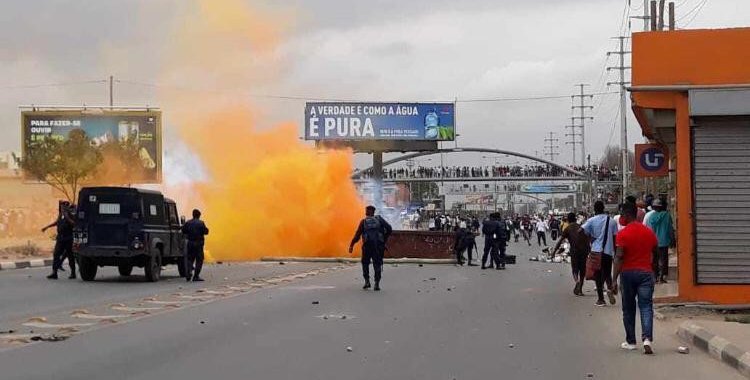The president of Constitucional, Laurinda Cardoso, in response to the precautionary measure of the "civic movement - a platform of civic and political organizations against the aforementioned law - to which Lusa had access, states that the precautionary procedure "is not an appropriate legal expedient to argue the constitutionality of the norms" of the law in question.
In addition to the fact that the applicants "do not have the legitimacy to request an inquiry into the constitutionality of the diploma in question", it is stated in the letter.
According to the STF, for that judicial body to rule on the constitutionality of the law that criminalizes acts of vandalism of public property, approved last July, the authors must request the good offices of entities with legitimacy to initiate inspection proceedings, whether preventive and successive in light of the Constitution.
The Constitution of the Republic of Angola (CRA) provides that the President may request the TC to preventively assess the constitutionality of any rule contained in a legal diploma and this, together with 1/10 of the deputies to the National Assembly in office, the parliamentary groups , the Attorney General of the Republic, the Ombudsman and the Brazilian Bar Association may request successive abstract inspection of any rule.
This position of the TC dates from August 16th and comes in response to the precautionary measure of this civic movement, sent to that body on August 2nd, 2024, alleging that there are unconstitutional rules in the aforementioned law.
For the civic platform, the law, with penalties ranging from three to 25 years in prison for offenders, contains provisions that are "ambiguous and limit freedoms".
The values of democracy are built on strict compliance with the moral values of popular sovereignty, say the subscribers, considering that the approval of the diploma "violates the fundamental rights, freedoms and guarantees" of citizens.
State institutions "cannot deny the rights enshrined in the Constitution. By proposing the responsibility of social and political agents for acts carried out by others, especially the exercise of freedoms of assembly and demonstration, it is a crude attempt to condition political action and organizations", they state in the document.
"A law made to this extent is not a democratic law, it is a security law", adds the "civic movement, a platform that called for a demonstration for this Saturday, in Luanda, against the aforementioned law and the National Security Law.
To Lusa, Adilson Manuel, one of the subscribers of the precautionary measure, said that the Constitutional Court "was unfortunate" in its position, which "contradicts article 29 of the CRA (access to the law and effective judicial protection)".
"This goes against the Constitution that gives everyone the right to complain when they see their rights violated. The fight continues with more strength", said the activist.







